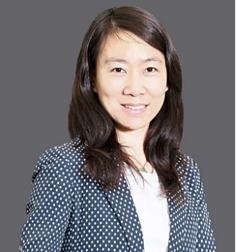Date/Time
Date(s) - February 15, 2019
11:45 am - 12:35 pm
Location
234 Weil Hall
Categories
 Lili Du, Ph.D.
Lili Du, Ph.D.
Associate Professor
Department of Civil & Coastal Engineering, University of Florida
Abstract: Coordinated In-Vehicle Routing Built Upon Online Learning and Distributed Optimization Computation for Connected and Autonomous Vehicles
Recent years, wireless communication, on-board computation facilities (personal digital assistants, smart phones, etc.) and advanced sensor techniques (loop detector, camera, GPS-based vehicle probe, etc.) have been integrated into transportation systems. These new technologies make a well-connected and data-rich transportation systems, i.e., connected vehicle system (CVS), under rapid development and is expected to be fully implemented in the near future. Even though CVS has been granted a great potential to intelligently route travelers (or CVs), scholars have recognized that as majority vehicles become CVs, current uniform real-time information provision may lead to even worsen traffic congestion, given each CV still selfishly and independently chooses its own shortest paths. This inherent deficiency of current routing methods is rooted from the inconsistency between system performance (system-optimality) and individual vehicles’ route choice behavior (user-optimality).
To address this challenge, our studies develop a novel Coordinated In-Vehicle Routing Mechanism (CRM), which coordinates the routing decisions of a group of CVs en route, seeking to balance the user-optimality and system-optimality. Briefly, the CRM models the routing decisions of a group of CVs as an atomic routing game, in which CVs decide their own online route choice or priorities by a negotiation and coordination process with other CVs. To establish such a CRM, we need to address the research challenges, including learning the online route competition potential among CVs, forming coordination group, establishing routing game models, proving the existence of the equilibrium, developing converging distributed algorithms to approach the equilibrium routing decisions, etc. This presentation will demonstrate how we address these research challenges and present the performance the CRM in the numerical experiments.